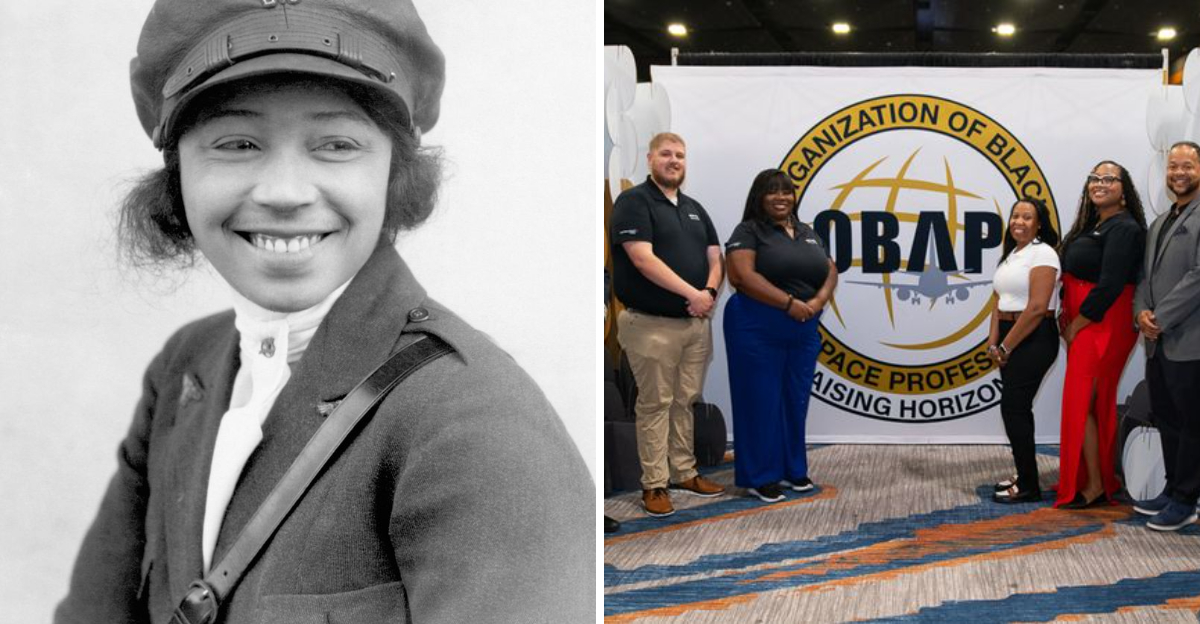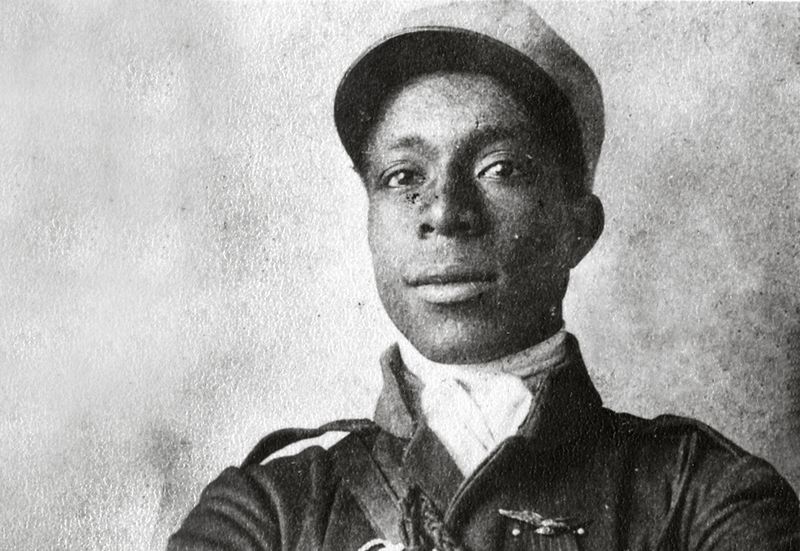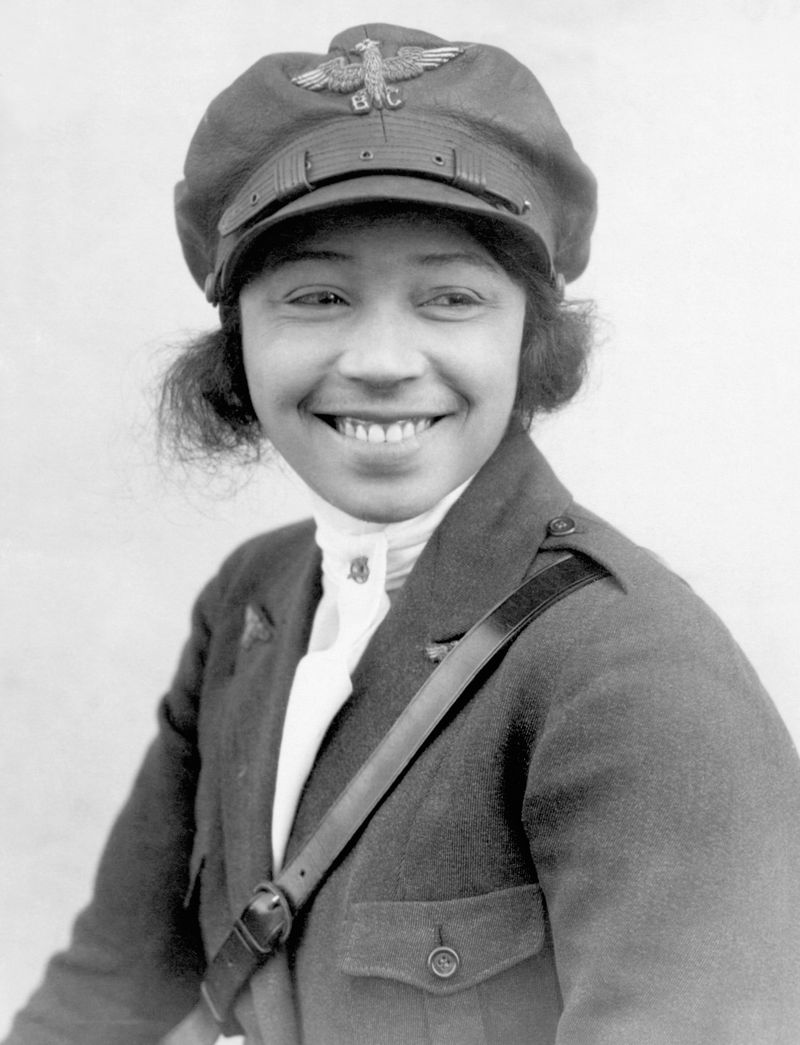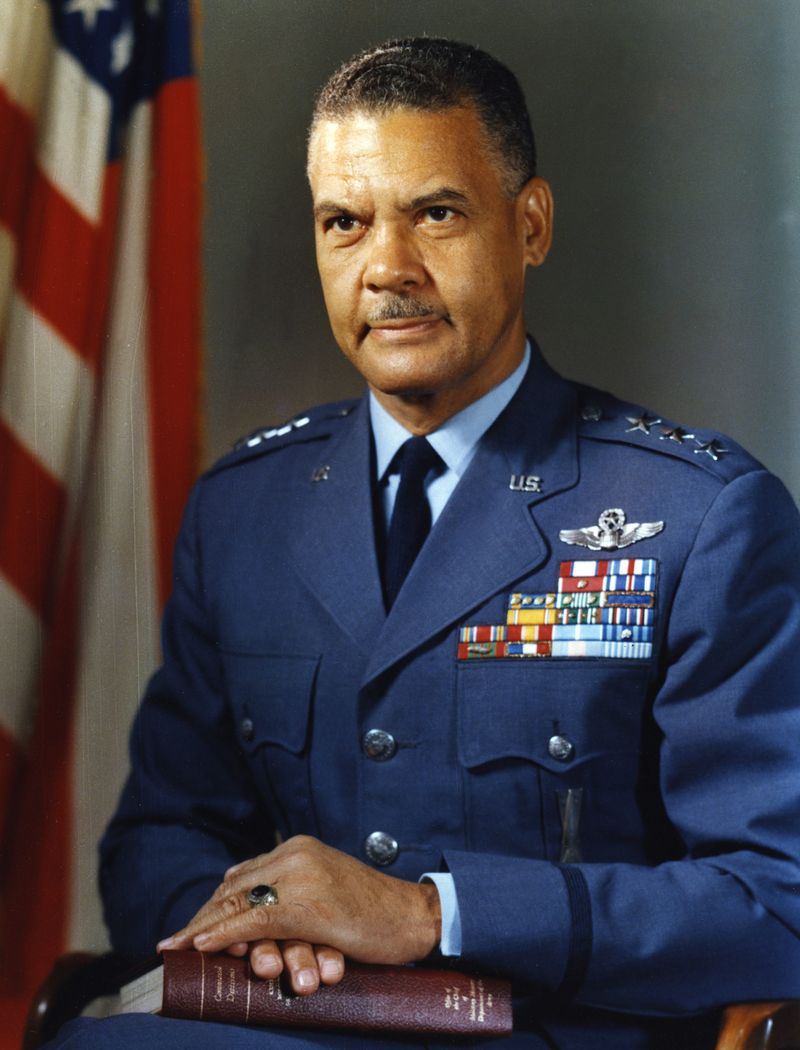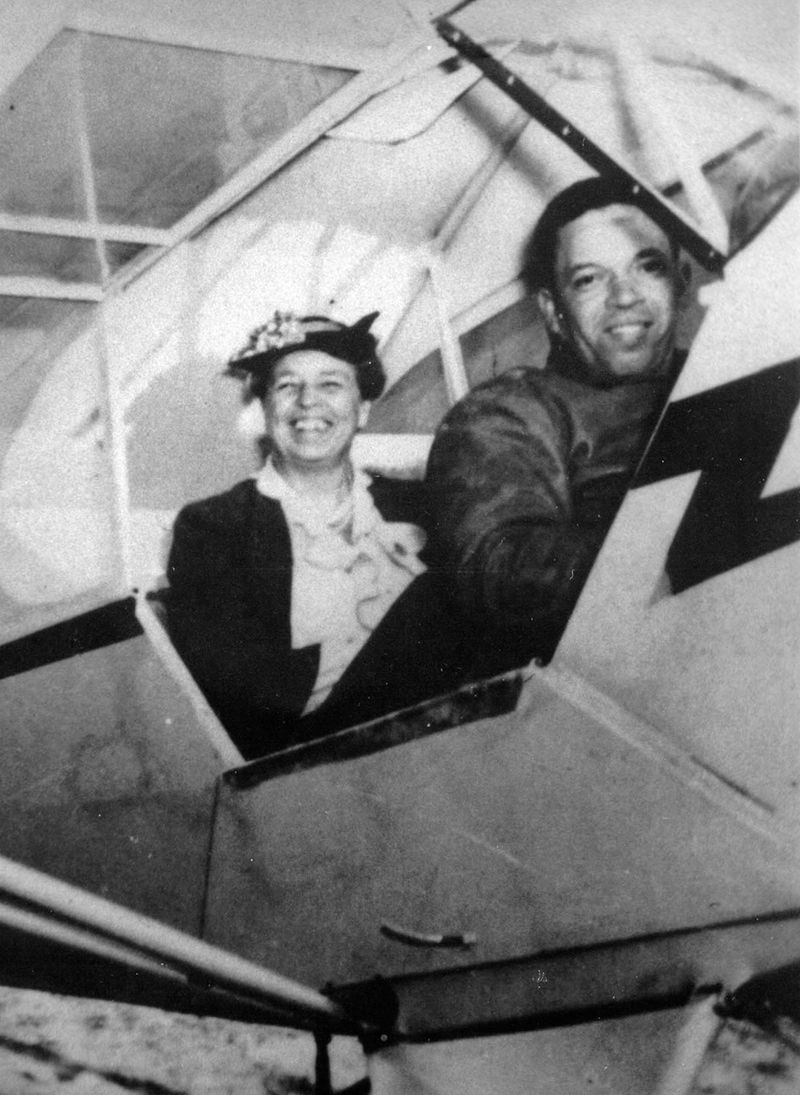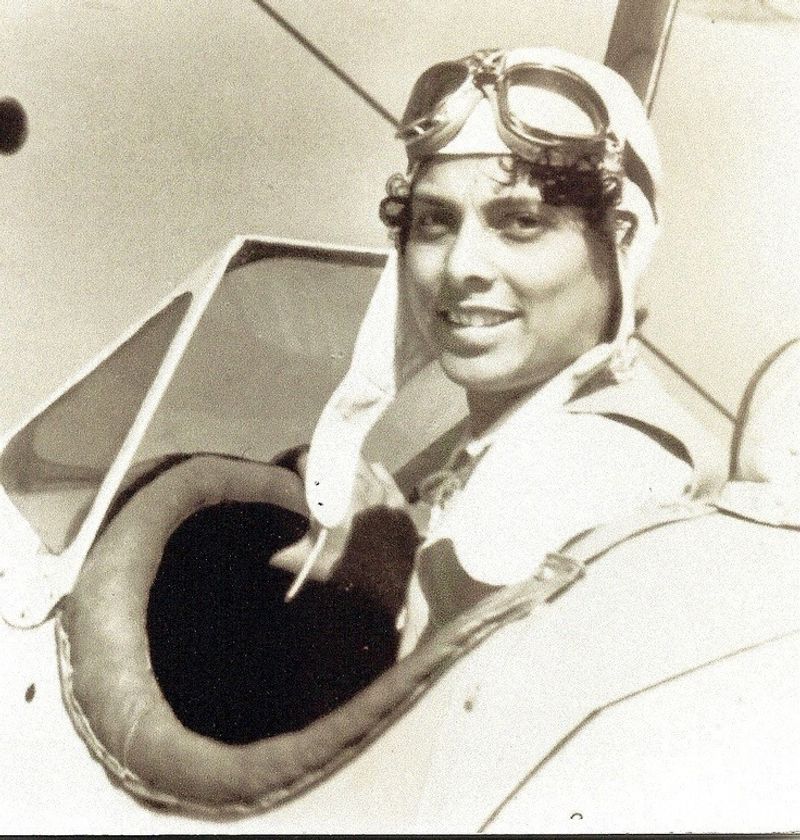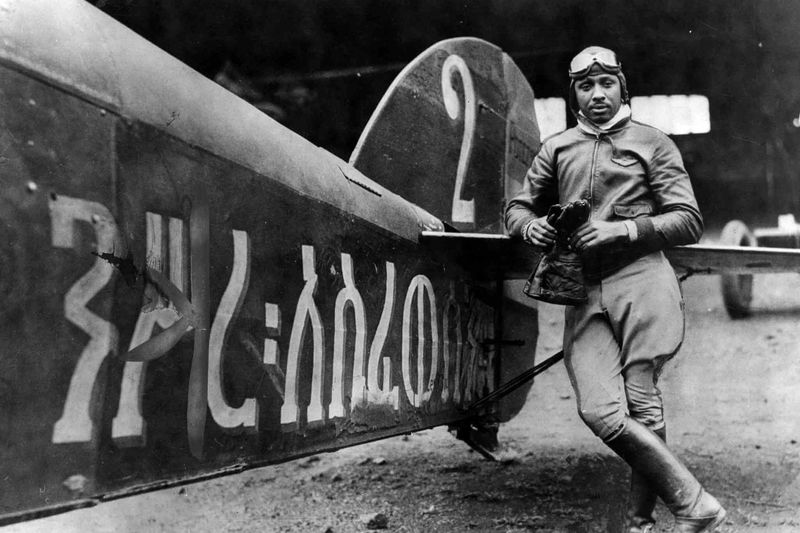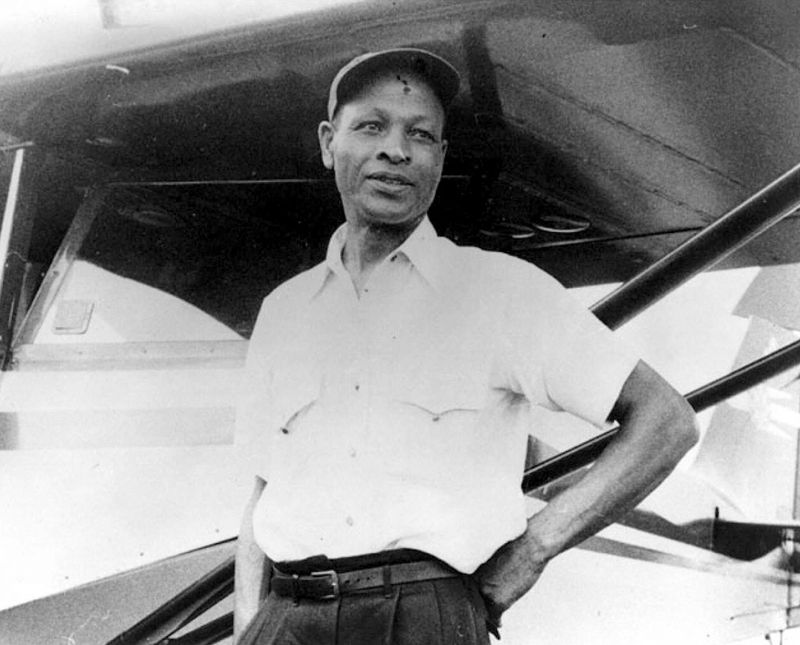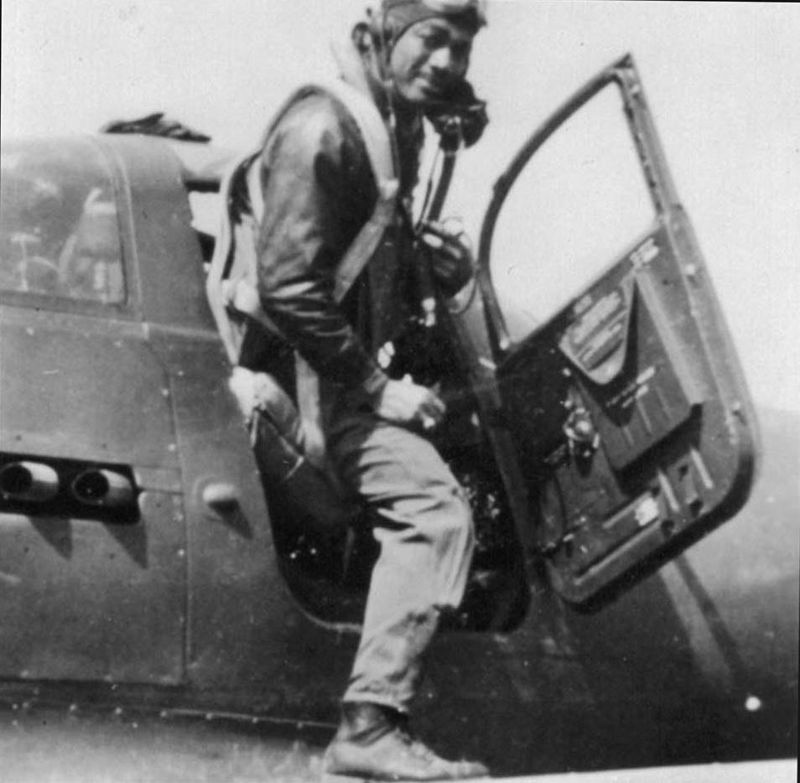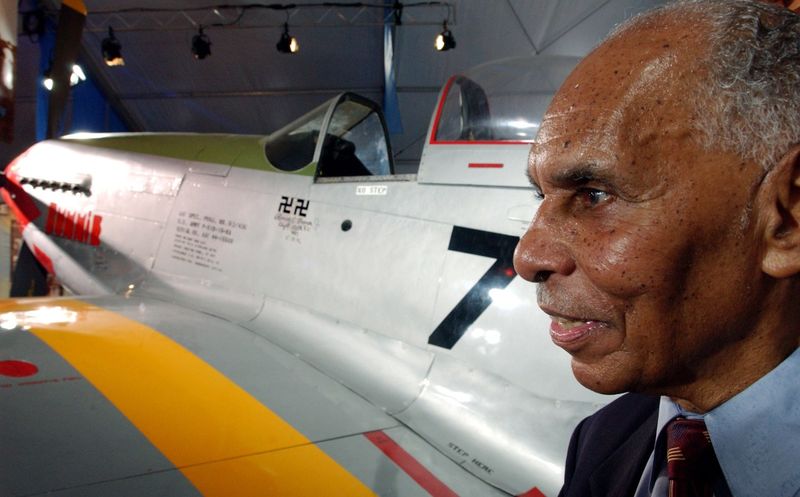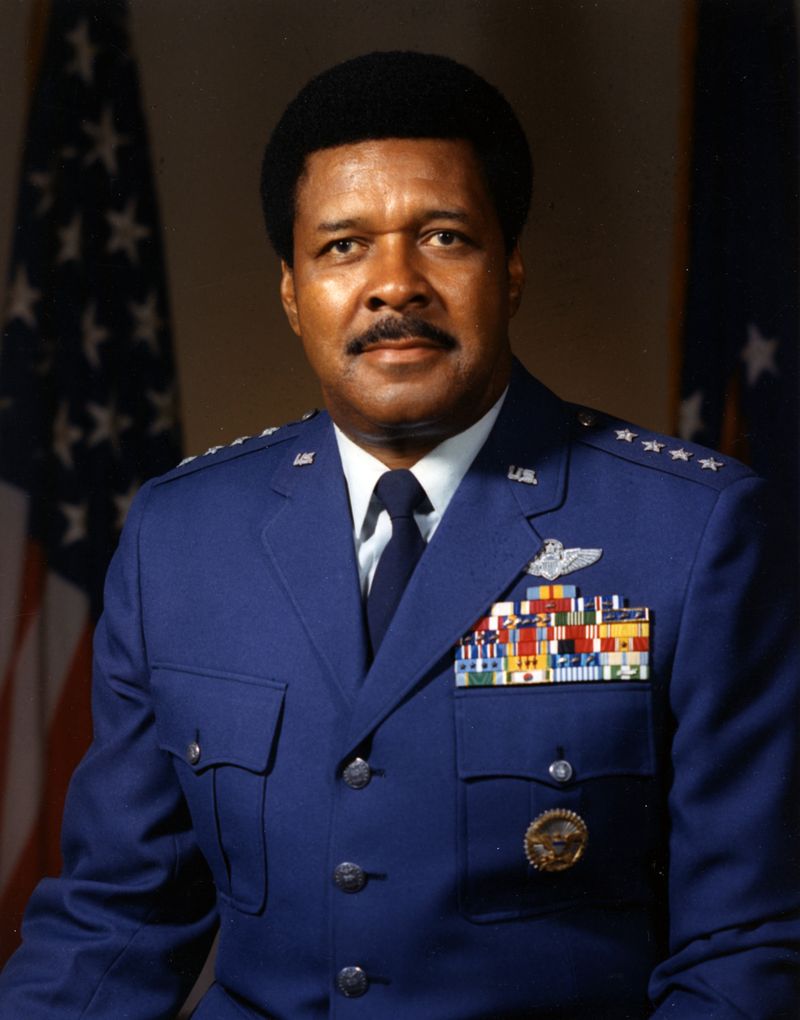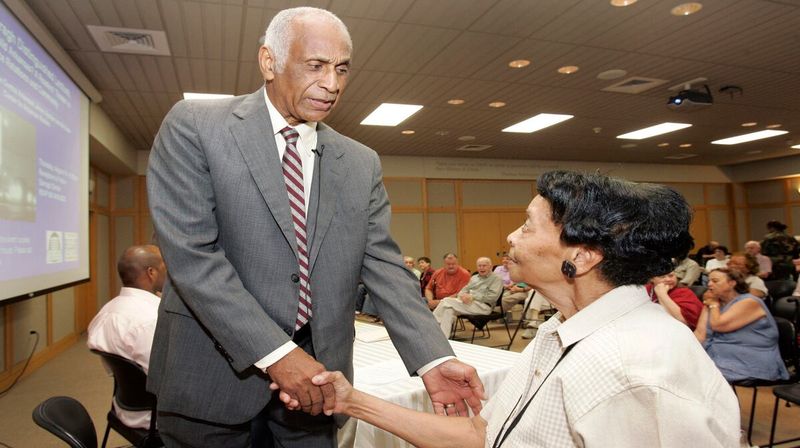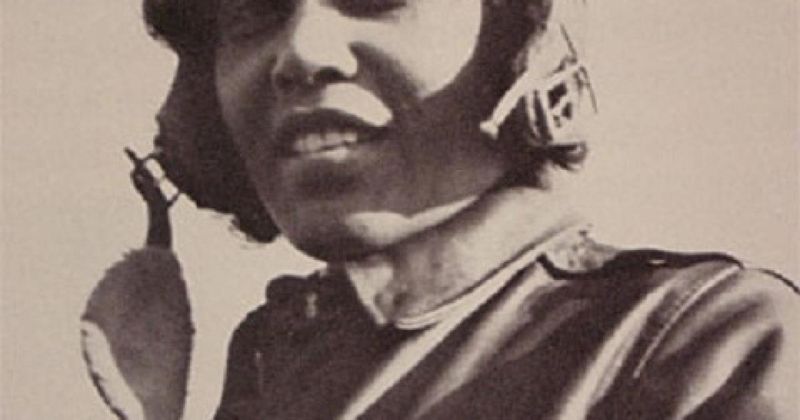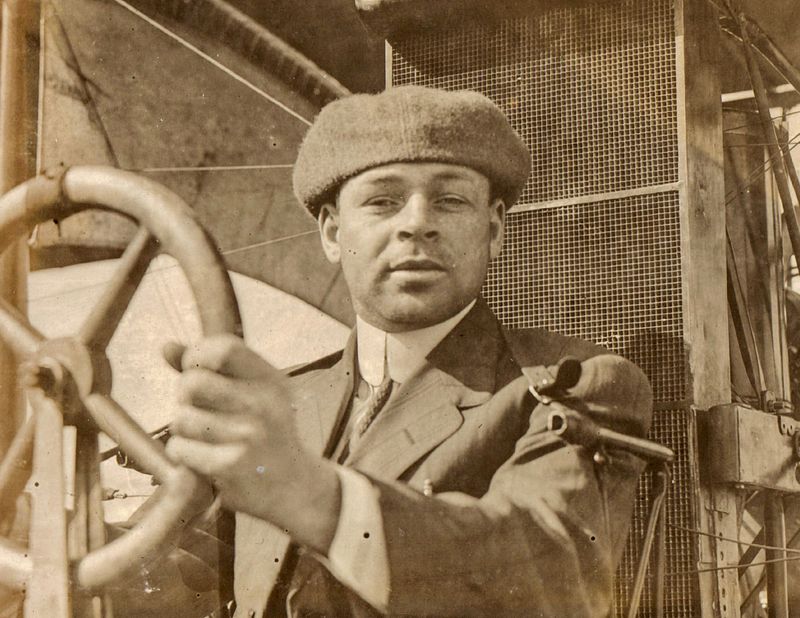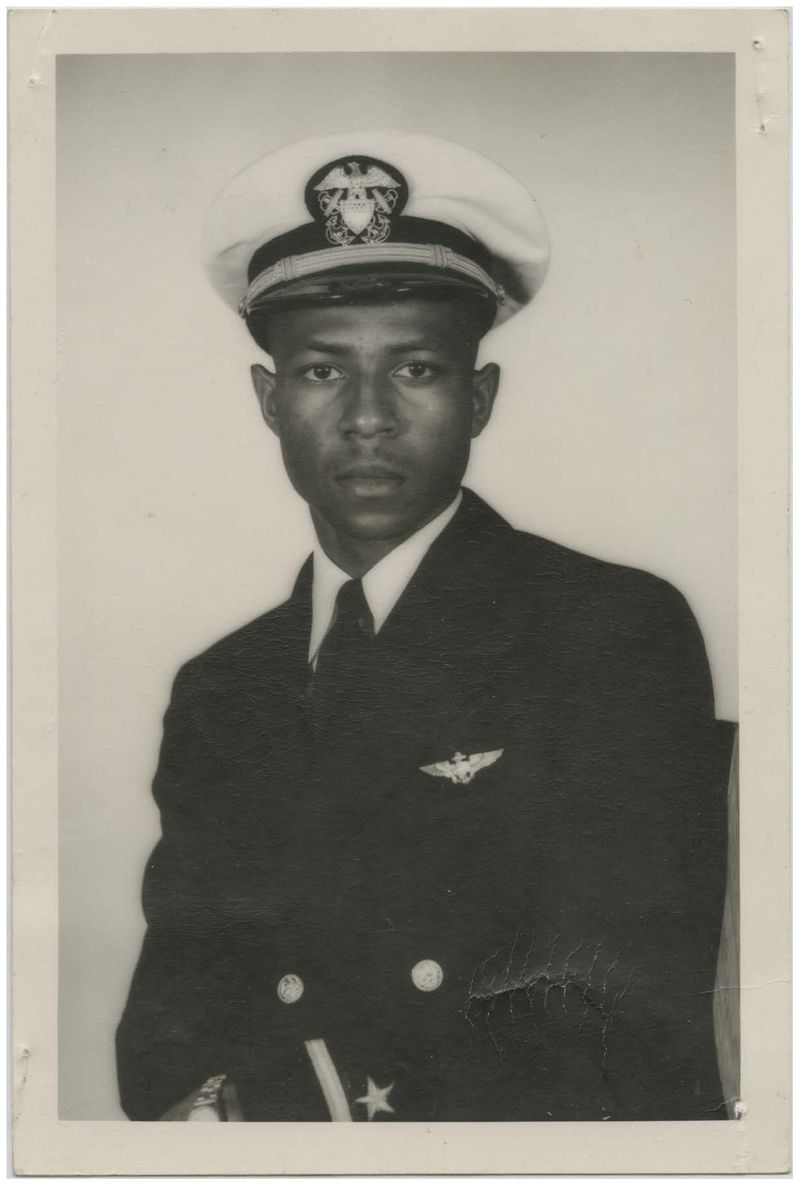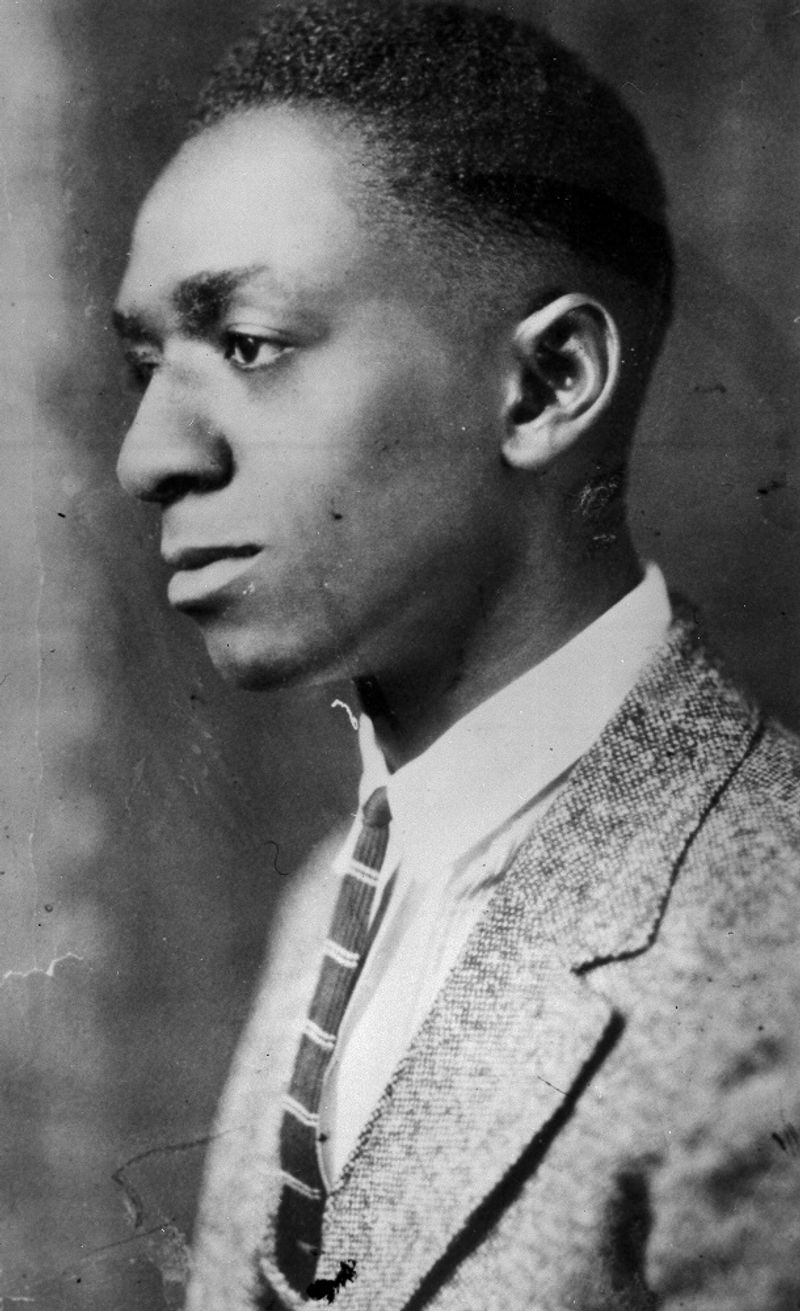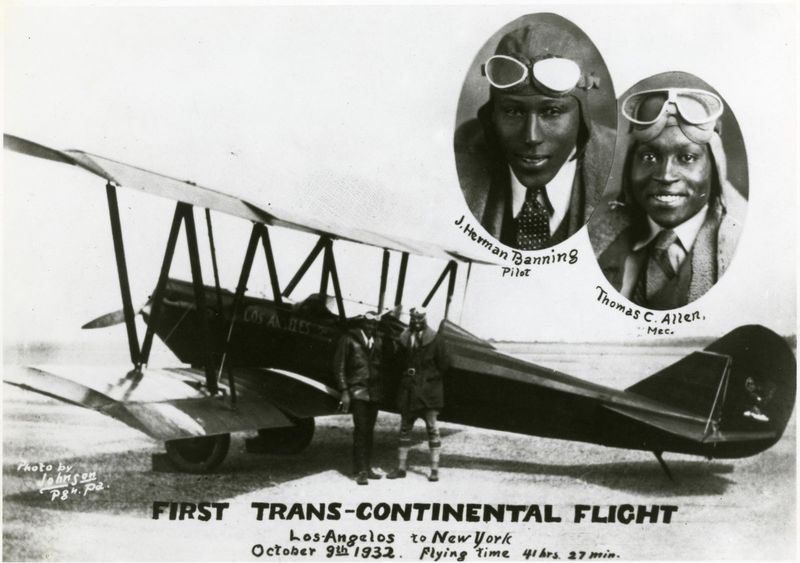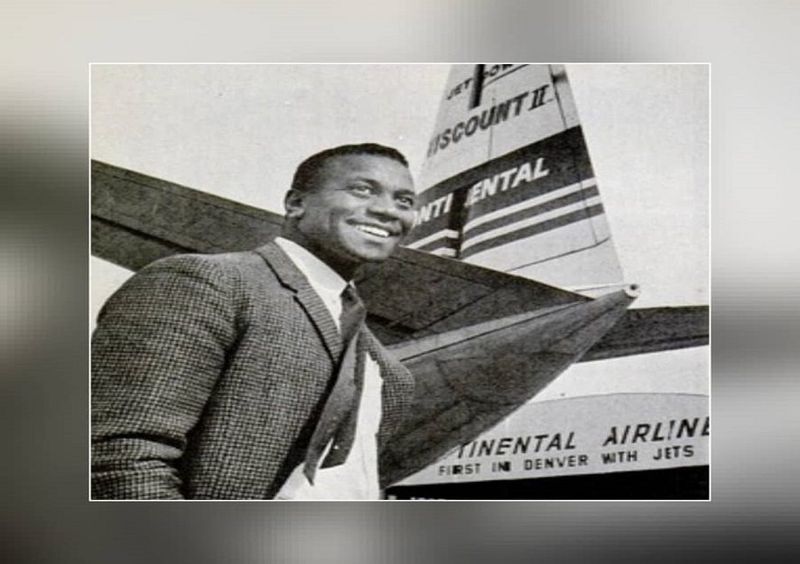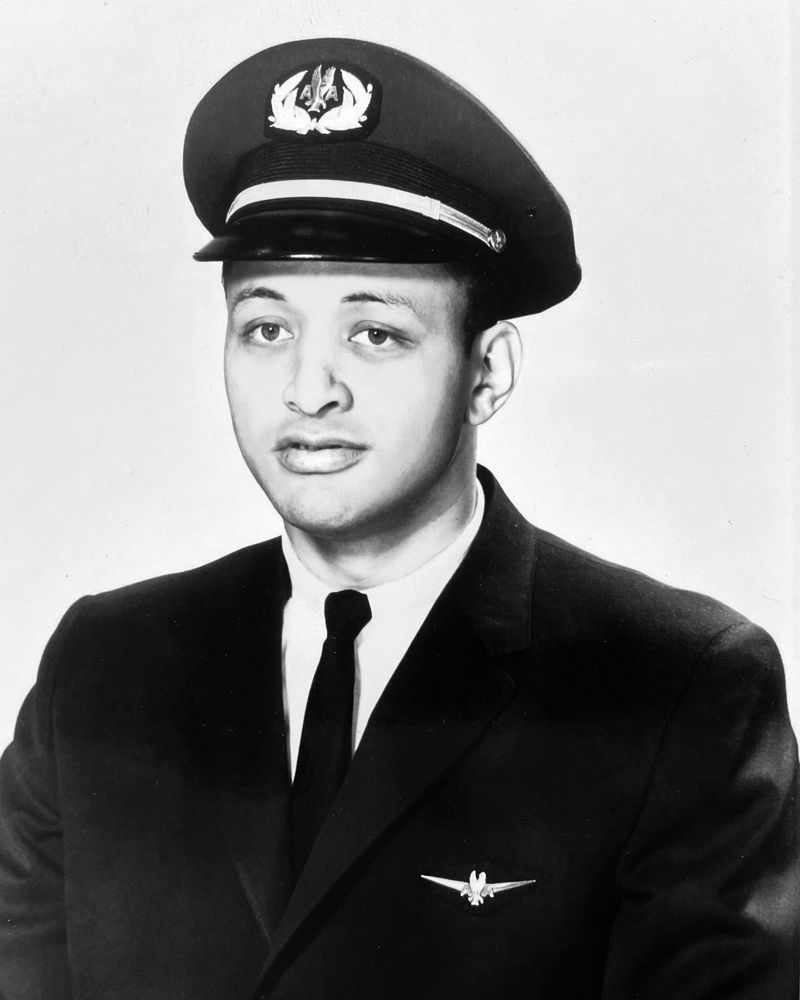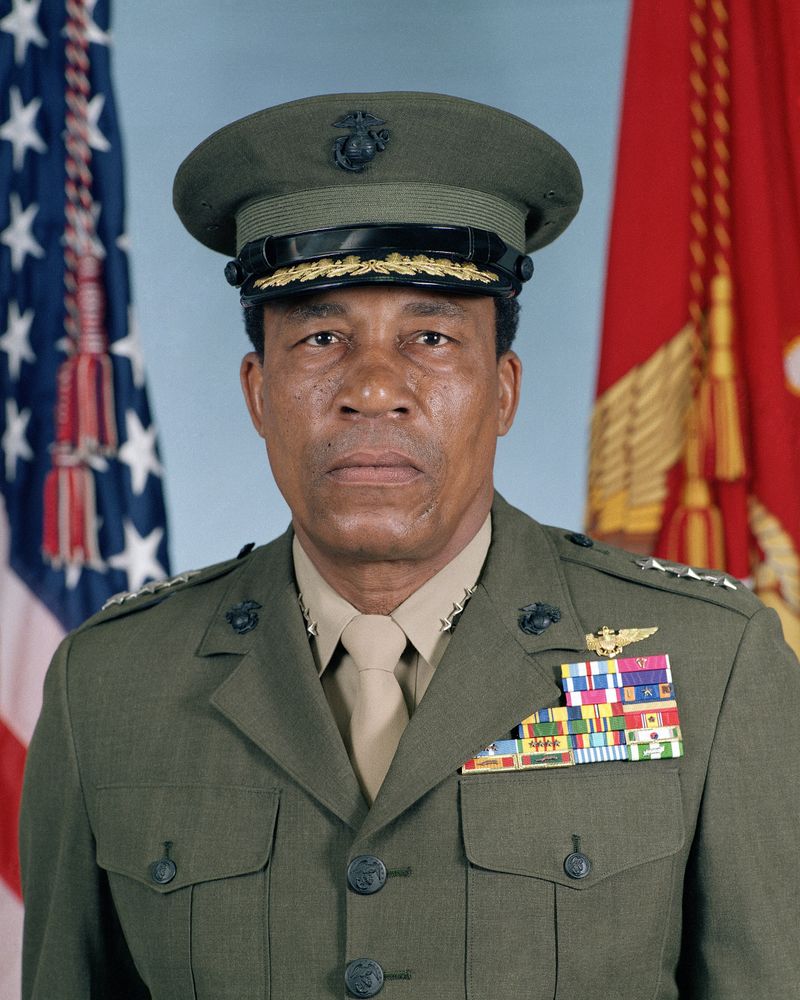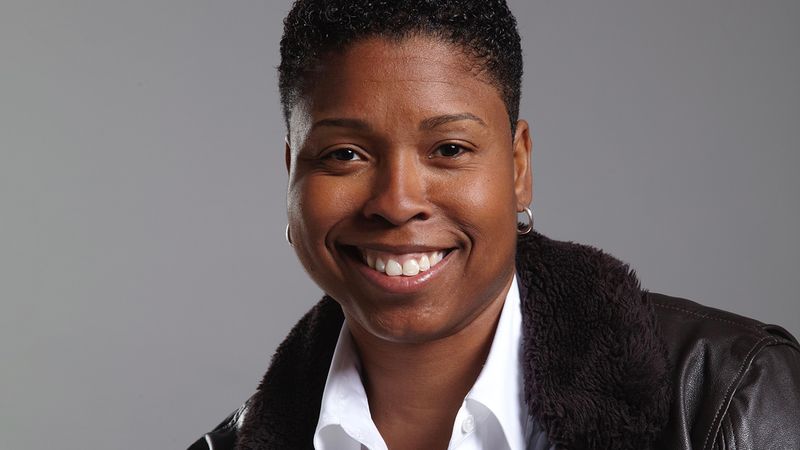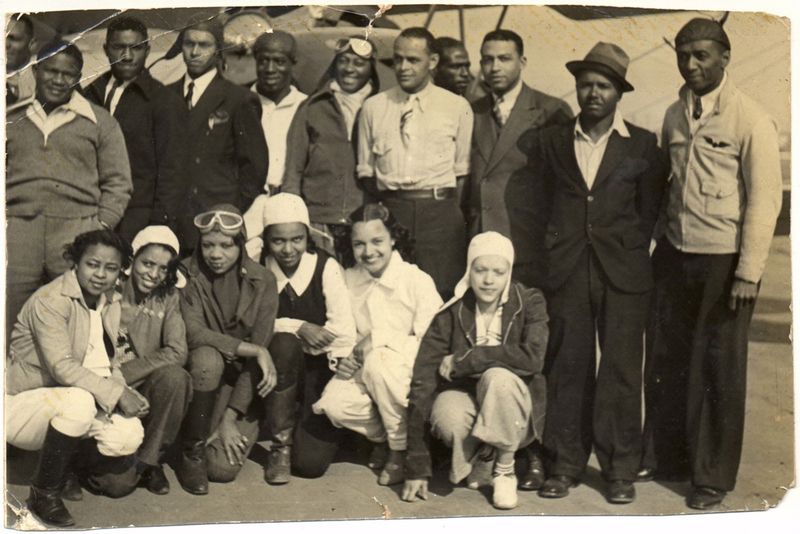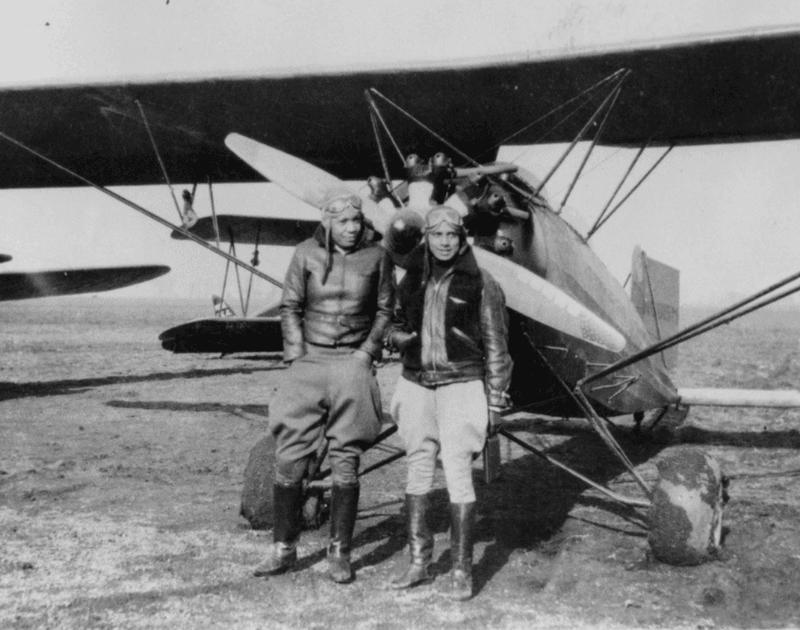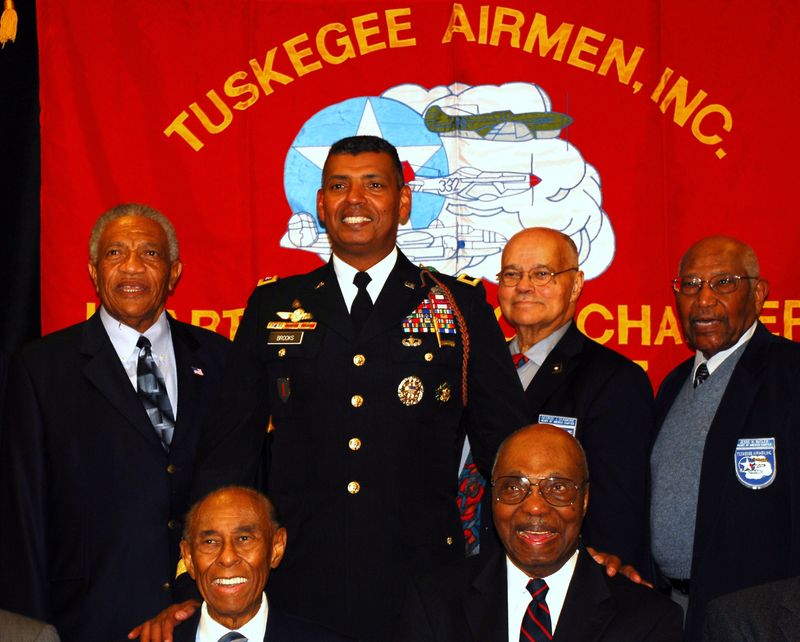Aviation history is rich with tales of bravery, innovation, and the relentless pursuit of dreams. Among these stories are the inspiring journeys of Black pilots and institutions that broke barriers and paved the way for future generations.
In this blog post, we celebrate 20 heroic Black pilots and 4 pivotal institutions that have changed the course of aviation forever.
These remarkable individuals and organizations have not only made significant contributions to aviation but have also played a crucial role in the broader fight for equality and representation.
Join us as we explore their extraordinary achievements and enduring legacies.
1. Eugene Jacques Bullard
Known as the “Black Swallow of Death,” Eugene Jacques Bullard was the first African American military pilot. Rejected by U.S. forces, he flew courageously for France during World War I. His daring missions not only earned him a place in history but also symbolized resilience and defiance against racial discrimination. Bullard’s story is a testament to the indomitable spirit of those who dare to dream beyond imposed limits, contributing to a legacy that inspires countless aviators today.
2. Bessie Coleman
Bessie Coleman shattered ceilings as the first African American woman to earn a pilot’s license, doing so in France in 1921 after being denied flight training in the U.S. Her fame as a stunt pilot and aviation pioneer inspired generations of Black aviators. Coleman’s legacy is one of courage and innovation, challenging societal norms and opening doors for women and people of color in aviation.
3. Benjamin O. Davis Jr.
As the commander of the Tuskegee Airmen and the first Black general in the U.S. Air Force, Benjamin O. Davis Jr. was a pivotal figure in integrating the military. His leadership and dedication not only shaped the success of the Airmen but also influenced broader military policies and civil rights advancements. Davis’ legacy is marked by his unwavering commitment to equality and excellence.
4. Charles Alfred “Chief” Anderson
Charles Alfred “Chief” Anderson, often called the “Father of Black Aviation,” was the first African American to receive a pilot’s license in the U.S. His 1941 flight with Eleanor Roosevelt challenged national opinions and paved the way for Black pilots. Anderson’s influence extended far beyond his own achievements, inspiring a generation of aviators and advancing the cause of racial equality in aviation.
5. Willa Brown
Trailblazer Willa Brown was the first African American woman to earn a commercial pilot license in the U.S. She co-founded the National Airmen’s Association of America and trained hundreds of Black pilots for WWII. Brown’s work was not only pivotal in the war effort but also in challenging gender and racial barriers, making her a significant figure in aviation history.
6. John C. Robinson
John C. Robinson, affectionately known as the “Brown Condor,” was instrumental in founding the Ethiopian Air Force during the Italo-Ethiopian War. His efforts were crucial in promoting African and African American aviation ties. Robinson’s legacy is one of international cooperation and empowerment, reflecting a commitment to using aviation as a tool for progress and unity.
7. Cornelius Coffey
Cornelius Coffey was a pioneer in aviation education, establishing the first Black-owned and operated flight school in the United States. His school trained many future Tuskegee Airmen, playing a critical role in their success. Coffey’s dedication to education and equal opportunity helped shape the future of aviation, making him a key figure in breaking racial barriers in the industry.
8. Lee Archer
Lee Archer was a distinguished Tuskegee Airman and WWII ace, flying over 150 missions in Europe. Officially credited with four confirmed kills, Archer’s combat achievements were a source of pride and inspiration. His strategic skill and courage in the skies epitomize the excellence and determination of the Tuskegee Airmen, cementing their place in both military and African American history.
9. Roscoe C. Brown Jr.
Roscoe C. Brown Jr., a fearless Tuskegee Airman, gained fame for shooting down a German Me 262 jet during WWII. His post-war career as an educator and civil rights leader furthered his impact, marking a life dedicated to justice and empowerment. Brown’s legacy is one of bravery in both combat and the ongoing fight for equal rights.
10. Daniel “Chappie” James Jr.
Daniel “Chappie” James Jr. was the first African American to achieve the rank of four-star general in the U.S. military. His illustrious career encompassed combat missions in WWII, Korea, and Vietnam, showcasing his unwavering dedication and leadership. James’s achievements paved the way for future generations, highlighting the potential for change and progress in the military.
11. Milton Pitts Crenchaw
Milton Pitts Crenchaw was one of the original Tuskegee flight instructors, training countless pilots whose successes would go on to redefine military aviation. His post-WWII advocacy for aviation inclusion continues to inspire. Crenchaw’s legacy is one of tireless dedication to education and equality, making him a cornerstone in the development of Black aviation history.
12. Janet Harmon Bragg
Janet Harmon Bragg made history as the first African American woman to earn a private pilot license in the United States. Her determination and passion for flying overcame societal barriers. Bragg’s legacy stands as a beacon of perseverance, inspiring women and minorities to pursue their dreams in aviation, despite the challenges they face.
13. Emory Conrad Malick
Emory Conrad Malick, one of the earliest known Black pilots in the U.S., earned his license in 1912. Despite limited recognition, he flew mail routes and barnstormed in the 1910s, showcasing his adventurous spirit. Malick’s contributions laid foundational stones for future Black aviators, highlighting the need to rediscover and celebrate all voices in aviation history.
14. Jesse Brown
Jesse Brown broke barriers as the first African American naval aviator in U.S. history. His service during the Korean War was marked by bravery until his untimely death in combat. Brown’s legacy of courage and trailblazing spirit continues to inspire future naval aviators, standing as a testament to the sacrifices and achievements of Black military personnel.
15. Captain William J. Powell
Captain William J. Powell was a visionary and author of ‘Black Wings,’ promoting Black aviation. He founded the Bessie Coleman Aero Club in Los Angeles, creating opportunities and awareness for African American pilots. Powell’s work was instrumental in challenging racial barriers and advocating for a more inclusive aviation industry. His legacy continues to inspire aspiring aviators.
16. Thomas C. Allen
Thomas C. Allen was among the few Black pilots in the 1930s to earn a commercial pilot license. His work as a barnstormer and trainer for future Tuskegee Airmen showcased his passion for aviation and dedication to mentorship. Allen’s legacy is one of breaking racial barriers and fostering talent, contributing significantly to the development of Black aviation.
17. Captain Marlon Green
Captain Marlon Green made history by winning a landmark Supreme Court case in 1963, ending racial discrimination in airline hiring practices. As the first African American commercial airline pilot for a major U.S. carrier, Green’s courage and determination paved the way for future pilots. His legacy stands as a testament to the fight for equality and justice in the aviation industry.
18. David Harris
David Harris became the first Black commercial airline captain for a major U.S. airline in 1964 with American Airlines. His achievement broke the color barrier for airline flight crews, setting a precedent for diversity and inclusion in the aviation industry. Harris’s legacy is one of perseverance and pioneering spirit, opening doors for future generations of aviators.
19. Frank E. Petersen Jr.
Frank E. Petersen Jr. was the first Black Marine Corps aviator and general, flying over 350 combat missions during Korea and Vietnam. His career exemplifies excellence and dedication to service, breaking racial barriers in the military. Petersen’s legacy is one of leadership and courage, inspiring future generations of military aviators and setting new standards for diversity.
20. Vernice “FlyGirl” Armour
Vernice “FlyGirl” Armour became the first African American female combat pilot in the U.S. Marine Corps, flying missions during Operation Iraqi Freedom. Her path-breaking role is a modern-day symbol of the Tuskegee legacy, inspiring countless women and minorities in aviation. Armour’s story is one of breaking barriers and advancing the cause of representation and empowerment in the military.
1. Bessie Coleman Aero Club
Founded in 1931, the Bessie Coleman Aero Club in Los Angeles aimed to promote African American aviation awareness and opportunities. By fostering a community of aspiring Black pilots, the club played a crucial role in challenging societal norms and encouraging diversity in aviation. The club’s legacy is marked by its commitment to inclusion and empowerment, honoring Bessie Coleman’s pioneering spirit.
2. Coffey School of Aeronautics
The Coffey School of Aeronautics was a groundbreaking institution that trained Black pilots in Chicago prior to and during WWII. By providing essential training to many future Tuskegee Airmen, the school played a crucial role in their success. Its legacy is one of education, empowerment, and breaking barriers, contributing significantly to both the war effort and the fight for racial equality in aviation.
3. Tuskegee Airmen Inc.
Tuskegee Airmen Inc. is an organization dedicated to preserving the legacy of these WWII pilots. By honoring their accomplishments and promoting their history, the organization ensures that the pioneering efforts of the Tuskegee Airmen continue to inspire new generations. Its work emphasizes the importance of remembering and celebrating the contributions of Black aviators to American history.
4. Organization of Black Aerospace Professionals (OBAP)
Formed post-Civil Rights Era, the Organization of Black Aerospace Professionals (OBAP) serves as a mentorship and advocacy group. Its mission is to support and advance the careers of Black aerospace professionals, fostering diversity and inclusion in the industry. OBAP’s work is crucial in building a future where aerospace is accessible to all, reflecting the achievements and aspirations of its members.
